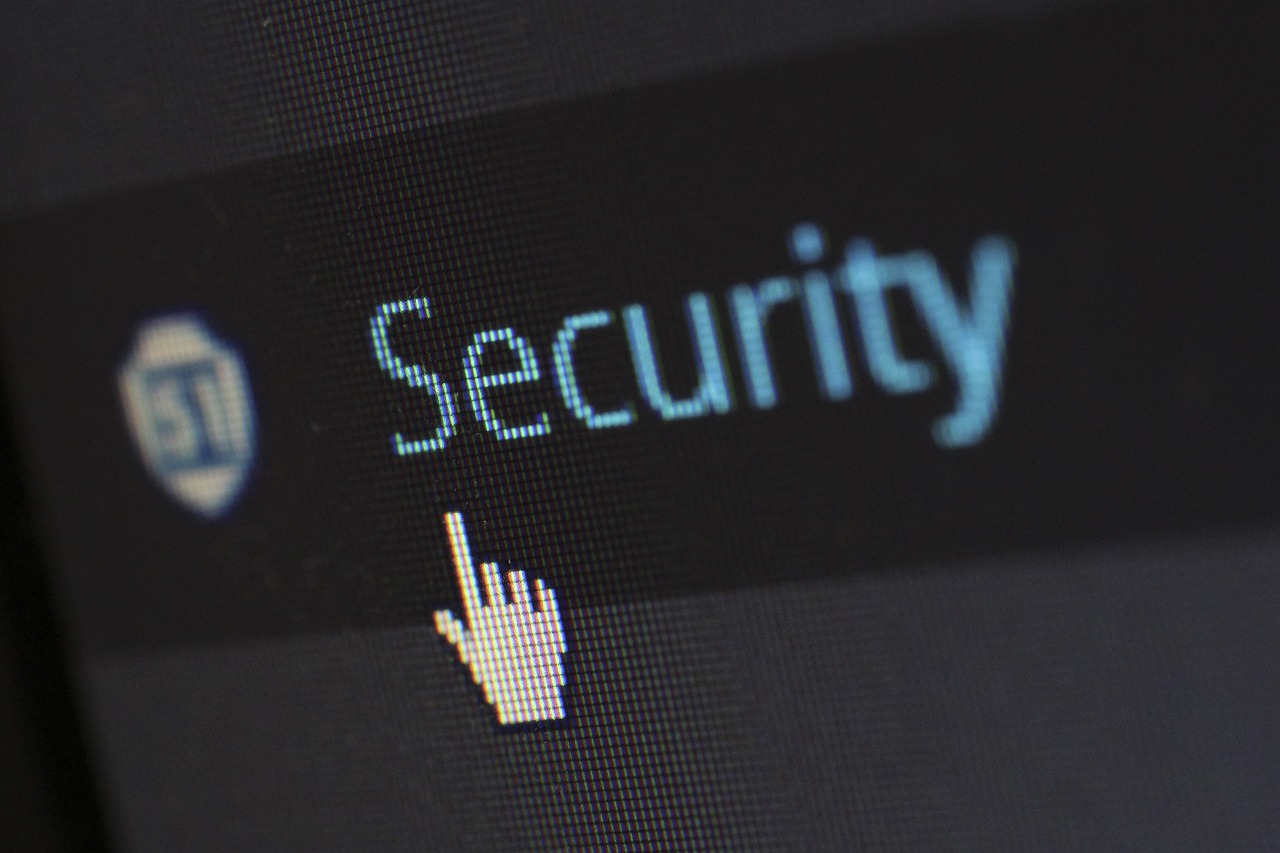In today’s digital age, security breaches and data theft pose a significant threat to businesses of all sizes. As a business owner or manager, ensuring the security of your customers’ sensitive information should be a top priority. This is where PCI compliance training comes into play. By familiarizing yourself and your employees with the Payment Card Industry Data Security Standard (PCI DSS), you can take crucial steps towards safeguarding your business against potential cyber threats. In this article, we will explore what PCI compliance training entails, its importance for businesses, and how it can help you mitigate risk and protect your company’s reputation. So, read on to discover the key aspects of PCI compliance training and why it is an essential investment for businesses today.
PCI Compliance Training
As a business owner, you understand the importance of protecting your customers’ sensitive payment card information. One way to ensure the security of this data is by maintaining Payment Card Industry (PCI) compliance. However, achieving and maintaining PCI compliance can be challenging without proper training and knowledge. This is where PCI compliance training comes in. In this article, we will explore what PCI compliance training is, who needs it, the benefits it offers, and how to choose the right training program for your business.

What is PCI Compliance?
PCI compliance refers to following the standards and regulations set by the Payment Card Industry Security Standards Council (PCI SSC) to protect the confidentiality and integrity of cardholder data during payment card transactions. It ensures that businesses handling payment card information have implemented the necessary security measures to prevent data breaches and fraud.
Who Needs PCI Compliance Training?
PCI compliance training is essential for any business that processes, stores, or transmits payment card data. This includes not only online businesses but also brick-and-mortar stores, e-commerce platforms, financial institutions, and service providers. Regardless of the size or industry of your business, if you accept payment cards, you need to be PCI compliant.
Benefits of PCI Compliance Training
-
Protecting Customer Data: PCI compliance training educates your employees about the importance of safeguarding customer payment card information. By ensuring your staff understands security best practices and potential risks, you reduce the chances of data breaches and protect your customers’ sensitive data.
-
Avoiding Penalties and Legal Issues: Non-compliance with PCI standards can result in severe consequences, including hefty fines, loss of reputation, and legal liabilities. PCI compliance training helps you stay updated with the latest compliance requirements, reducing the risk of non-compliance and associated penalties.
-
Building Customer Trust: When your customers know that you have taken the necessary steps to protect their payment card information, they will trust your business more. By demonstrating your commitment to PCI compliance, you can attract more customers and retain their loyalty.
-
Preventing Financial Loss: Data breaches can be expensive for businesses. PCI compliance training equips your employees with the knowledge and skills required to identify and address vulnerabilities, reducing the risk of financial loss due to security incidents.
Choosing a PCI Compliance Training Provider
Selecting a reliable and reputable PCI compliance training provider is crucial to ensure the effectiveness of your training program. Consider the following factors when choosing a training provider for your business:
-
Expertise and Credentials: Look for a training provider with extensive experience in PCI compliance and a proven track record of delivering effective training programs. Check if they are certified by recognized organizations in the cybersecurity industry.
-
Comprehensive Course Content: Ensure that the training program covers all relevant topics related to PCI compliance, including the latest updates and regulations. Look for courses that provide practical examples and case studies to enhance understanding.
-
Format and Delivery Options: Consider your employees’ availability and learning preferences. Look for training providers that offer flexible options, such as in-person training, online courses, or a combination of both, to accommodate your specific needs.
-
Reviews and Recommendations: Check online reviews and testimonials from other businesses that have undergone training with the provider. Seek recommendations from industry peers who have successfully achieved PCI compliance.
-
Ongoing Support: PCI compliance is an ongoing process. Ensure that the training provider offers post-training support and resources to help you maintain compliance and stay up-to-date with evolving security threats.

Types of PCI Compliance Training
PCI compliance training programs come in various formats to cater to different learning styles and organizational needs. Some common types of training include:
-
Online Courses: These self-paced, web-based courses provide flexibility, allowing employees to complete the training at their own convenience. Online courses often include interactive modules, quizzes, and assessments to reinforce learning.
-
In-Person Workshops: In-person training workshops are conducted by experienced trainers who deliver the course material in a classroom setting. This format allows for direct interaction and discussion with the trainer and other participants.
-
Virtual Instructor-Led Training: Similar to in-person workshops, virtual instructor-led training combines the convenience of online training with the benefits of live interaction. Participants can join the training remotely and engage in real-time discussions.
Key Topics Covered in PCI Compliance Training
PCI compliance training covers a range of topics to ensure that your business understands and implements the necessary security measures. Some key topics covered in PCI compliance training include:
- Understanding the PCI Data Security Standard (PCI DSS)
- Examining the scope and applicability of PCI DSS requirements
- Implementing security controls to protect cardholder data
- Conducting vulnerability scans and penetration tests
- Maintaining compliant network architecture and configuration
- Monitoring and managing access to cardholder data
- Responding to security incidents and breaches
- Compliance reporting and self-assessment questionnaires (SAQs)
Best Practices for PCI Compliance
In addition to PCI compliance training, implementing best practices can further strengthen your business’s security posture. Consider the following best practices for maintaining PCI compliance:
-
Keep Software and Systems Updated: Regularly update software, systems, and firmware to ensure they are protected against known vulnerabilities. This includes both operating systems and third-party applications used in payment processing.
-
Segment Your Network: Separate your network into different segments to limit access to cardholder data. This helps contain potential breaches and prevents unauthorized access to sensitive information.
-
Encrypt Stored Data: Encrypt sensitive cardholder data, both in transit and at rest. Encryption provides an additional layer of protection and ensures that even if data is compromised, it remains unreadable by unauthorized individuals.
-
Restrict Physical Access: Implement physical security measures, such as access controls, surveillance cameras, and security checkpoints, to prevent unauthorized individuals from accessing areas where payment card data is stored or processed.
-
Train Employees Regularly: Conduct regular security awareness training sessions for all employees to educate them about the importance of PCI compliance, security best practices, and how to handle sensitive data securely.
Steps to Achieve and Maintain PCI Compliance
-
Determine Your Business’s PCI Compliance Level: Understand the specific PCI compliance requirements applicable to your business based on the number of payment card transactions you process annually.
-
Conduct a Risk Assessment: Identify and assess potential risks and vulnerabilities in your cardholder data environment. This includes both technical and administrative aspects of your business operations.
-
Implement Necessary Security Controls: Based on the risk assessment, implement the required security controls to protect cardholder data. This includes measures such as firewalls, encryption, access controls, and security policies.
-
Perform Regular Security Monitoring and Testing: Continuously monitor and test your security controls to identify any weaknesses or vulnerabilities. Regularly review access logs, conduct vulnerability scans, and perform penetration testing.
-
Complete Annual Self-Assessment Questionnaire (SAQ): Depending on your business’s compliance level, complete the appropriate SAQ provided by the PCI SSC. The SAQ helps you review and document your compliance status.
-
Engage with Qualified Security Assessors (QSAs): In some cases, particularly for larger organizations or those processing a higher volume of transactions, engaging with QSAs may be required for a formal PCI compliance assessment.

FAQs about PCI Compliance Training
-
Is PCI compliance training mandatory? PCI compliance training is not explicitly mandated by the PCI SSC. However, it is highly recommended for businesses that handle payment card data to ensure their employees understand the importance of security and compliance.
-
How often should PCI compliance training be conducted? Regular training sessions should be conducted to reinforce security best practices and keep employees informed about any updates or changes in compliance requirements. Consider conducting training at least annually or when significant changes occur.
-
What are the consequences of non-compliance? Non-compliance with PCI standards can result in significant fines, loss of reputation, legal liabilities, and even the suspension of card payment processing privileges. Additionally, businesses may be liable for costs associated with data breaches and fraudulent transactions.
-
Can I handle PCI compliance internally without training? While it is possible to handle PCI compliance internally, comprehensive training significantly enhances your understanding of the requirements and ensures that all employees are aligned with security best practices. Training also helps in identifying and addressing potential vulnerabilities effectively.
-
Will PCI compliance training make my business 100% secure? PCI compliance training provides the knowledge and tools necessary to enhance your business’s security posture. However, it is important to note that no security measure can guarantee 100% protection against breaches. Continuous monitoring, regular training, and staying informed about evolving threats are essential to maintain a secure environment.
Remember, PCI compliance is crucial for the security of your customers’ payment card information. By investing in comprehensive training and implementing best practices, you can protect your business and build trust with your customers. If you have any further questions or need assistance with PCI compliance training, contact [Lawyer’s Name] at [Phone Number] to schedule a consultation.
Disclaimer: The content provided in this article is for informational purposes only and should not be considered legal advice. For specific guidance and advice regarding PCI compliance training, consult with a qualified professional.
